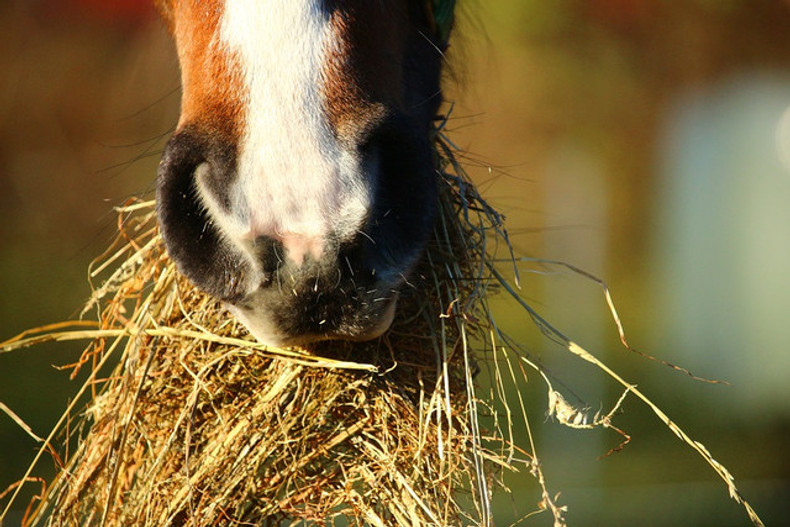Harvest time of hay is one of the most influential factors that determine the quality of hay. As grasses and legumes continue to grow and mature the amount of valuable nutrients such as protein and energy decrease. Each day harvest is delayed reduces the quality of the hay.
As plants progress from the vegetative state (no seed heads or flowers) to the final seed formation state, the amount of structural components such as lignin increases. Lignin is indigestible by the horse, so the more lignin there is in a plant the less the horse will be able to digest and utilize. For every 1% increase in lignin, digestibility of the forage decreases 3-4%. Therefore, mature-cut hay is less digestible than immature-cut hay. Horses that are consuming very mature, late-harvested hays will produce more fecal matter because lignin is not digestible and therefore passed through as waste.
Hay quality is not determined by the particular cutting, but rather by the stage of maturity at the time it was cut. Forage analysis should be used to determine actual values for protein, digestible energy, and other valuable nutrients. Ideally, a hay sample would be sent off for analysis any time a new load of hay is purchased. A good rule of thumb is to purchase at least a 3 month supply of hay at a time to make it worth the time and money to send in a forage analysis. Your local extension agent or nutrition consultant can help with forage sampling and analysis as well as interpretation.
When faced with lower quality forage options, there is no better time to feed nutrient dense, high quality feeds to balance what the mature hay lacks in regard to protein, calories, vitamins, and minerals. Intensify®, Equilene®, and Horseman’s Elite® lines by Bluebonnet Feeds are excellent companions to mature cut forage because of the elevated levels of “cool energy” calorie sources, high quality amino acid profiles, and balanced vitamin and mineral ratios.
When good quality hay is in short supply, forage extenders such as Equilene® Complete and Intensify® Total Advantage are excellent options. These feeds are high in fiber and can be fed in large volumes replacing hay pound for pound while ensuring all vitamin and mineral requirements are met.
Keep in mind that no forage, no matter what time it was cut, will provide adequate levels of minerals. A horse that is on a ‘hay-only’ diet should be offered a vitamin and mineral package such as Element® or Pro Balance.

